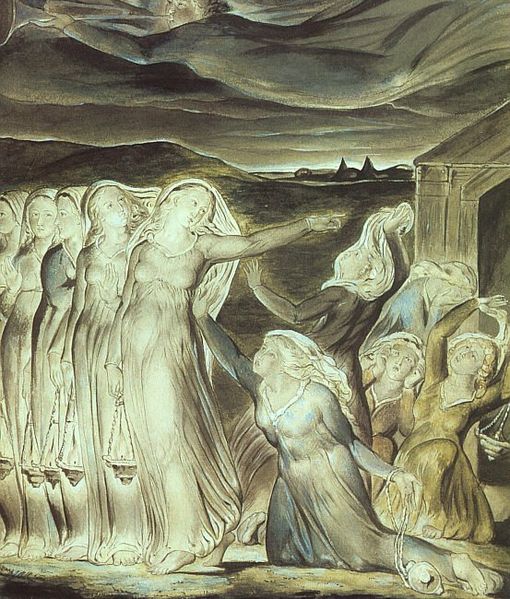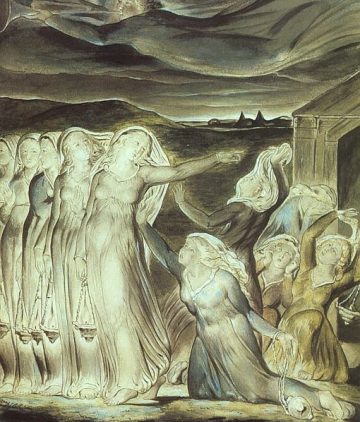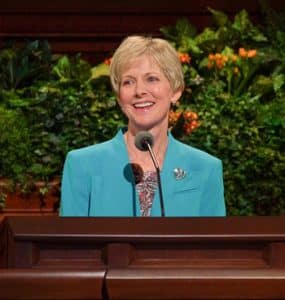As a rule, I do not feel like I fit well in Relief Society. I’ve mentioned this feeling previously on the blog. But this past year, have been making a good-faith effort this past year in trying to somehow assimilate into the ward wherein I reside. It has not been comfortable for me. The most common and prevalent conservatively-styled interpretations of lessons frustrate my heart, mock my life and scald my testimony. Nonetheless, I actually began look forward to fast Sundays. The stake I am in assigned the Relief Societies to teach a chapter from Daughters in My Kingdom for the first Sunday curriculum this year. With the inspiration of the Exponent Lesson plan series on the book, I have found light in even the most problematic lessons and teaching interpretations—and therefore not been as depressed and anxious as I am prone on other Sundays as I enter the Relief Society class (my ward skips all over the Lorenzo Snow book, so I am unable to marry up the Exponent Lesson plans in the same way.)
 For the month of September, we hit chapter 9, “Guardians of the Hearth.” Oh, dear. The chapter with heavy emphasis on the Family Proclamation, which on many levels, all but crushes any residual testimony from me. And the teacher? A conservative woman, who is heavily seeped in Mormon cultural ideology. Still, she is a good woman, who seems to forgive my non-traditional interruptions (even when I speak without being called on). Lest you think my perception of her disingenuous, every time she teaches, she repeatedly welcomes comments from an intellectually disabled woman that have little to no application in the lesson, and with the skill of a loving sister, thanks her with sincerity and artfully weaves in these statements to the lesson. I admire her for that.
For the month of September, we hit chapter 9, “Guardians of the Hearth.” Oh, dear. The chapter with heavy emphasis on the Family Proclamation, which on many levels, all but crushes any residual testimony from me. And the teacher? A conservative woman, who is heavily seeped in Mormon cultural ideology. Still, she is a good woman, who seems to forgive my non-traditional interruptions (even when I speak without being called on). Lest you think my perception of her disingenuous, every time she teaches, she repeatedly welcomes comments from an intellectually disabled woman that have little to no application in the lesson, and with the skill of a loving sister, thanks her with sincerity and artfully weaves in these statements to the lesson. I admire her for that.
Still, I poised myself for an onslaught of stay-at-home mother advice.
It did not come. Instead was a lesson of the heart. She spoke of her hopes and dreams as a newlywed, but how her husband had always struggled to find and secure employment. She had worked for her entire marriage, and had been the primary breadwinner for her family for the majority of that time, including when she had children. She confessed that she resented her need for, as well as resented her employer when her firstborn was just 6 months old. Then, she taught how she found reconciliation because she was placing her family first by providing for her family. And how now, she feels at ease with her life, her family, her career and her testimony. The she taught of her regret that she had underperformed in her work because of her earlier resentment, and how she strove to always do her best now because of the blessing she has of being employed.
And with this month’s visiting teaching message on the subject of self-reliance, all I could think of was her story. Her truth. Her testimony. And I also thought about an article titled “Mormon Masculinity: Changing Gender Expectations in the Era of Transition From Polygamy to Monogamy, 1890-1920,” and how the authors discussed the emergent Mormon man of that era, and his institutional encouragement to find employment with a “higher purpose.” And I wondered. What would it be like if women were taught to be ready for employment that would provide for their families, and prepare them (from the message)
“for full-time Church service in the years to come,”
rather admonishing women to only work outside of the home in times of absolute need, and only for the purpose of money, or even suggesting that women’s income is only to provide “extravagances.” Because this is what I was taught as a young woman; that women only work for the money and no other reason. Almost as if working outside of the home was akin to prostitution, because proper Mormon women hated professional employment, and only do it if absolutely necessary.
This train of thought made me curious about the choice of scriptural references, namely Matthew 25:1–13, which is the story of the wise and foolish virgins, a parable of the Second Coming of Christ. In this, I wondered if the concept of Self Reliance was reflective of the start of new Era of Transformation in the church, where women and men are equal partners, or at times, the primary providers of temporal and spiritual well-being. If it is, am I one of the prepared wise virgins? I’d like to think so, and yet…. I am not sure I can fully answer yes if asked if I could provide temporally for my family on just my income, or provide for my family spiritually on just my testimony. Can you answer “yes” to both? What about the women you visit teach?
With this in mind, I thought about what do I need to do, in my individual situation to ensure I am one of the “wise virgins.” At the end of the formal message, there is a series of statements (below), and I like them. Because each is a talking point, mostly because some I over-do and others I under-do. Because I like the idea that this could be the next LDS “Era of Transition.” But mostly, because I want and seek to be self-reliant, in my own terms, without someone else telling me how to be righteous, what career I *should* undertake and, in turn, what kind of oil *should* best suit me as I anticipate the coming of the Bridegroom.
Learn to love work and avoid idleness.
Acquire a spirit of self-sacrifice.
Accept personal responsibility for spiritual strength, health, education, employment, finances, food, and other life-sustaining necessities.
Pray for faith and courage to meet challenges.
Strengthen others who need assistance
What are your thoughts on Self-Reliance?
Could this simple, yet direct instruction be a manifestation of a new “era of transition” in the church?
Cross-compare this to the last time Self-Reliance was a Visiting Teaching topic here.






7 Responses
My thought on self reliance is that it’s a paradox. We are taught on one hand to be self reliant and on the other hand that we rely on God for everything and on the Savior for many things we can’t do for ourselves.
Self reliance seems to mean not being needy, implying that there is something wrong with being needy, yet who can we serve if no one has needs?
But then, I find truth often walks hand-in-hand with paradox.
I guess I don’t mind the occasional lesson on self reliance, I just wish it would be balanced with an equal number of lessons on self-care. I think many women work and self-sacrifice to a fault and have a hard time remembering that they are not only put on this earth to care for human beings, but are themselves human beings who also require care.
Amen, Emily U. Brilliantly put.
My visiting teaching group met this past Tuesday and planning for retirement was brought up. Retirement, wills, life insurance, disability insurance- they are so very important, but I know I didn’t know much about them when I graduated high school and became an adult!
This is my firt visit to this website, and I was delighted to realize how many strong and spiritual women share my feelings and conflicts about Mormon culture and my deep-rooted faith. Thank you!
This blog somewhat confused me. The leaders of the church have encouraged women to become educated or gains skills. In this life one never knows what will be thrown your direction. I think one needs to make a distinction between the Theology and guidance of the leadership of the church and the culture of the church. I have much difficulty with the Mormon Culture – but that is not the church, Only their personal interpretation.
Self- reliance is not about not being independent and not needy, but about gaining the skills, knowledge and wherewithall to resolve the problems and difficulties that come into your life. Reliance on the Lord and guidance are important, but also the faith that one might be directed to the solution- not necessarily be handed it in a basket. Having been a single mother and twice divorced while in the church, through most of my membership, I have realized that many of those that have looked down on my choices . Or even , chastised me for not staying home with my children. Do not have the revelation that I have received for myself the work the Lord wants me to do.
I’m glad to find this sight- ladies. Just remember to not let others interpret the teachings of the gospel for you, Research for yourself the scriptures and counsel not the blathering of someones cultural perspective.
Deb S. You said it PERFECTLY!! I have so much to write, but can not right at this moment. I am trying to find a VT for my appointment in exactly 1 hour and am very glad I stumbled upon your website to get a different point of view.
I will for sure be coming back.
=)
[…] enjoyed thinking about this lesson because it is so empowering to women, especially to young woman. The September 2013 Visiting Teaching message was on self-reliance, and might be good for teachers to review before delving into the lesson […]